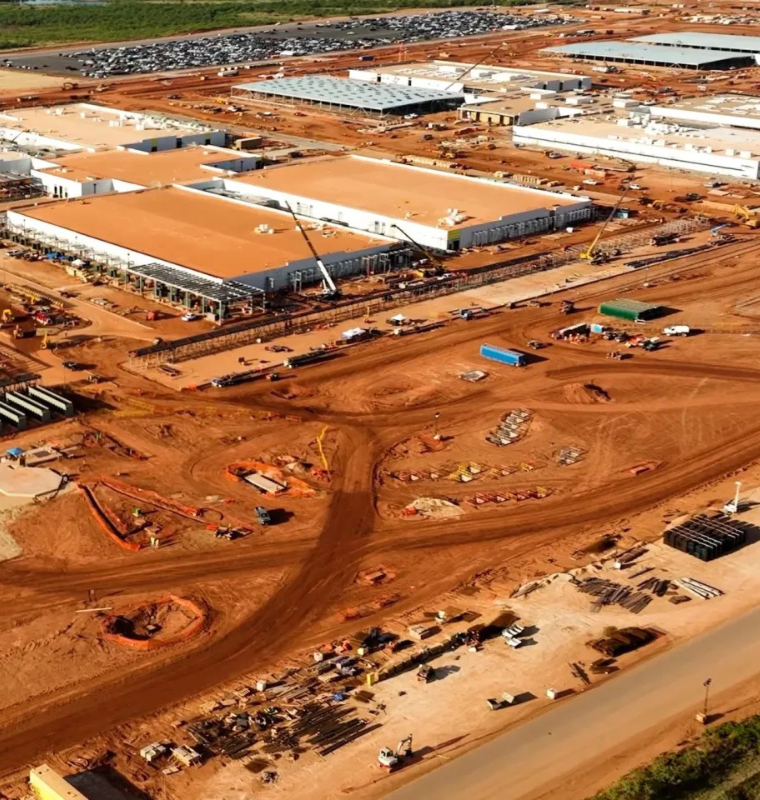Tech Titans Who Once Relied on H-1B Visas to Build Global Empires
Tech Titans Who Once Relied on H-1B Visas to Build Global Empires
By
Junia Wells
Last updated:
September 30, 2025
First Published:
September 30, 2025

Photo: Al Jazeera
The H-1B visa program has long been a subject of heated debate in Washington, with critics arguing it limits opportunities for American workers. Yet, this same program has played a pivotal role in shaping some of the most influential technology leaders in the U.S.
President Donald Trump’s recent proposals to impose $100,000 fees on H-1B applications and overhaul the program have reignited discussions about its impact on American businesses and innovation. Despite the controversy, the stories of prominent tech leaders show how vital H-1B visas have been to the U.S. tech ecosystem.
Elon Musk: From South Africa to Silicon Valley
Elon Musk, the world’s richest person, arrived in the U.S. from South Africa in 1992 to attend the University of Pennsylvania and later Stanford University. Musk credits the H-1B program as a key enabler for him and many critical team members who helped build SpaceX, Tesla, and other companies that have become global powerhouses. Despite supporting some reforms, Musk has consistently defended the role of H-1B visas in sustaining America’s innovation leadership.
Eric Yuan: Zooming to Global Success
Eric Yuan, 55, moved to the U.S. from China in 1997 on his ninth attempt at an H-1B visa, sponsored by Webex (later acquired by Cisco Systems). With limited English proficiency, Yuan overcame numerous challenges to launch Zoom in 2011. The company’s IPO in 2019 valued his shares in the billions. Yuan highlights how U.S. openness to immigration has fueled business growth and technological innovation.
Satya Nadella: Microsoft’s Growth Architect
Satya Nadella, CEO of Microsoft, arrived from India in 1990 and later navigated a unique H-1B scenario to bring his wife to the U.S. in 1994. Nadella has praised the H-1B program for providing Microsoft with essential high-skilled labor that kept the company globally competitive, while advocating for reforms to simplify and modernize the visa system.
Jayshree Ullal: Leading Arista Networks
Born in the U.K. and raised in New Delhi, Jayshree Ullal moved to the U.S. at 16 and eventually obtained an H-1B visa. She rose through major tech firms, including Fairchild Semiconductor, AMD, and Cisco, before becoming CEO of Arista Networks. Ullal has emphasized the need for streamlined immigration policies, noting that permanent residency can take up to 15 years—a significant portion of a professional’s career. With a net worth of $6 billion, she represents the success potential of global talent in the U.S.
Jeff Skoll: eBay Pioneer and Philanthropist
Jeff Skoll, the first President of eBay, came to the U.S. from Canada to study at Stanford University and secured an H-1B visa in 1996. Skoll has publicly supported the program, citing personal struggles in obtaining the visa and the importance of H-1B workers for specialized roles in tech. Even with proposed reforms, he stresses the program’s critical role in sustaining American companies’ competitive edge.
The Broader Impact
Together, these stories highlight how H-1B visas have been instrumental in attracting global talent that drives technological innovation, job creation, and economic growth in the U.S. While reforms may be necessary to prevent abuse, completely restricting access could jeopardize the competitiveness of American tech companies.
The debate continues in Washington, but the experiences of Musk, Yuan, Nadella, Ullal, and Skoll underscore one undeniable truth: U.S. innovation has been fueled in large part by global talent supported through the H-1B visa program.
Popular articles
Subscribe to unlock premium content
Why Consumers Buy Limited-Edition Fashion and Beauty Products

How K-Beauty Changed the Global Skincare Industry and Consumer Expectations

How Streetwear Became a Billion-Dollar Industry From Niche to Mainstream

Why Consumers Buy Limited-Edition Fashion and Beauty Products

How K-Beauty Changed the Global Skincare Industry and Consumer Expectations

Why Consumers Buy Limited-Edition Fashion and Beauty Products









